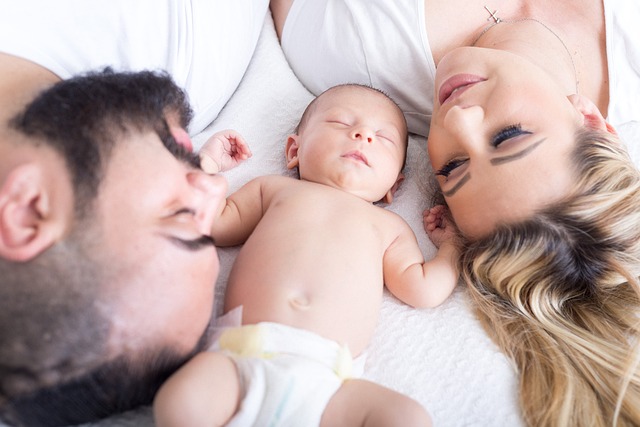
Children born through egg donation service does not have a genetic relationship with their mother. The intended mother conceives the baby through IVF process. In this IVF treatment, the donor egg may be fertilized with the sperm of the infant's father or donor sperm (in case of the infertile father) artificially in a laboratory set-up.
Then, after 3 to 5 days, the created embryo is transplanted to the mother's womb for further development of the child. In case of a successful pregnancy, the intended mother deliver the child after completion of the gestational period.
However, IVF treatment is not always required donor's gametes for conception. Many infertility problems can be treated with IVF by using the gametes of the parents.
In a comparison of egg donation and IVF families, the quality of the parent-infant relationship is less interactive about the childbirth history in egg donation family.
The family enjoys fully after the childbirth through donor egg and noticeable high in warmth, joy with high affection towards the child and very low anger, rejection, and disappointment.
Mother gets gradually attracted towards the child and love and affection is comparably same with genetically related mothers.
However, at the initial stage, egg donation mothers may have a lower level of confidence in their parenting ability, which may occur due to the increasing age of the mother. Some mother-child relationship is negatively affected by depressive symptoms of the mother, which may occur due to the absence of family or social support.
Read Also: Egg donation
But in most of the research study representation, parents who build their family through using assisted reproductive technology are very much committed and loving towards their child, which showcase a positive relationship between parent-child relationship.
Some cases, egg donation mothers may less emotionally sensitive, but less hostile too. They are more interactive with their infants, which helps to build a positive relationship between mother and child at the latter half of their life.
In short, there is the very negligible difference is noticeable between egg donation family and naturally conceiving a family.
The type of donation also has an impact on the mother-child relationship in the case of egg donation family. Both anonymous donation and an identity‐release donation can be possible. The type of egg donation process selection plays a critical role in the parent-child relationship.
Depending upon the specificity of individual family requirement and nature of parents they must choose either of the methods. But mostly parents select anonymous donation to avoid social stigma.
Besides, Some mothers may have a feeling of identity disclosure of donor, which can impact the mother-infant relationship. In such cases, an anonymous donation will be the better choice.
All parents indeed have faced challenges during the transition period of parenthood. In the case of the egg donation process, parents may take longer time to understand their parenting role. Optimal relationship quality in egg donation gradually comes in the family after the mother-infant relationship builds strongly.



